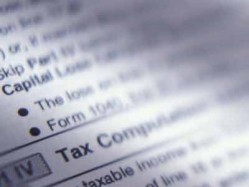Hotels ‘missing out’ on unclaimed tax relief: Capital allowances explained

That’s according to a number of specialist tax advisers, who also claim that failure to spot hidden capital allowances could ‘destroy value and significantly reduce market valuation’ of hotels.
“Capital allowances for integral features typically account for 10 to 30 per cent or more of the purchase price of a property,” said Neil Tipping, senior tax consultant at CCH – a global tax and accounting business which works with Wolters Kluwer, operating an advisory service which carries out capital allowances reviews for accountants, tax advisers and businesses.
“Even in a modest hotel, we’d expect to find hidden allowances up to 20 per cent of the base cost. In our experience – ranging from Scottish castles to small regional hotels – the total value can exceed 65 per cent."
The 2012 Finance Bill changed the way capital allowances are dealt with and a deadline of April 2014 has now been set for any of the taxes that are still unclaimed. So, for businesses wishing to unlock the tax relief as soon as possible, BigHospitality has produced a lowdown of capital allowances with help from Specialist tax adviser STax.
What are capital allowances?
Capital allowances are available on items bought for use within a business. So for hotels, they would apply to expenditure on things such as fixtures and fittings like air conditioning units and integral features.
Capital allowances are often inaccurately assessed and processed by accountants, meaning that the majority of businesses are missing out on significant tax benefits.
What are the benefits of claiming?
Accurately assessing qualifying items and processing an effective claim will in many cases form the basis of a substantial write off against the profits of your business, resulting in a lower tax charge or in some cases a cash rebate for previous years.
Ninety-six per cent of businesses are estimated to be under-claiming their rightful capital allowance tax relief - to the tune of tens of billions of pounds. Individual claims can sometimes amount to as much as 35 per cent of the value of a freehold – for example, £350K of tax relief for a building bought for £1m.
Why are so many businesses missing out?
The rules governing which items are eligible to be pooled for this form of tax relief are complex and vary significantly from building to building and across different industries.
Andrew Stanley, founder of specialist tax adviser STax, said: “It is crucial to take professional advice from a capital allowances expert to ensure every eligible item is included in the pool.
Typically businesses can claim on items that are used in the running of a business, such as heating, security, general power, fire alarms and even carpet.
“Whereas a good accountant should pick up assets such as computers and phone systems, many fail to include less obvious items, especially integral features or ‘within the wall’ items. Consequently, most property owners are only claiming the tip of the iceberg while most of the value remains hidden from them.”
Why do I need to claim now?
The HMRC does not have a problem with properly structured and researched capital allowance claims, but it has signalled a tougher line under new rules that apply when properties change hands. Capital allowances for fixtures could be lost to the buyer and all future owners, following the changes in the Finance Act 2012.
These changes have far-reaching implications for hoteliers – and also their accountants, tax advisers, property agents and solicitors, advises Tipping from CCH.
“Failure to identify hidden capital allowances could destroy value and significantly reduce the market valuation of properties,” he added. “These changes complicate an aspect of capital allowances that was already shrouded in confusion, and they raise the stakes for all involved in commercial property.”
Hotels must make any claims for capital allowances in their Company Tax Return. When doing so, they must include a separate capital allowances calculation with their return to show how you arrived at the figures you entered. For more information, click here.





















